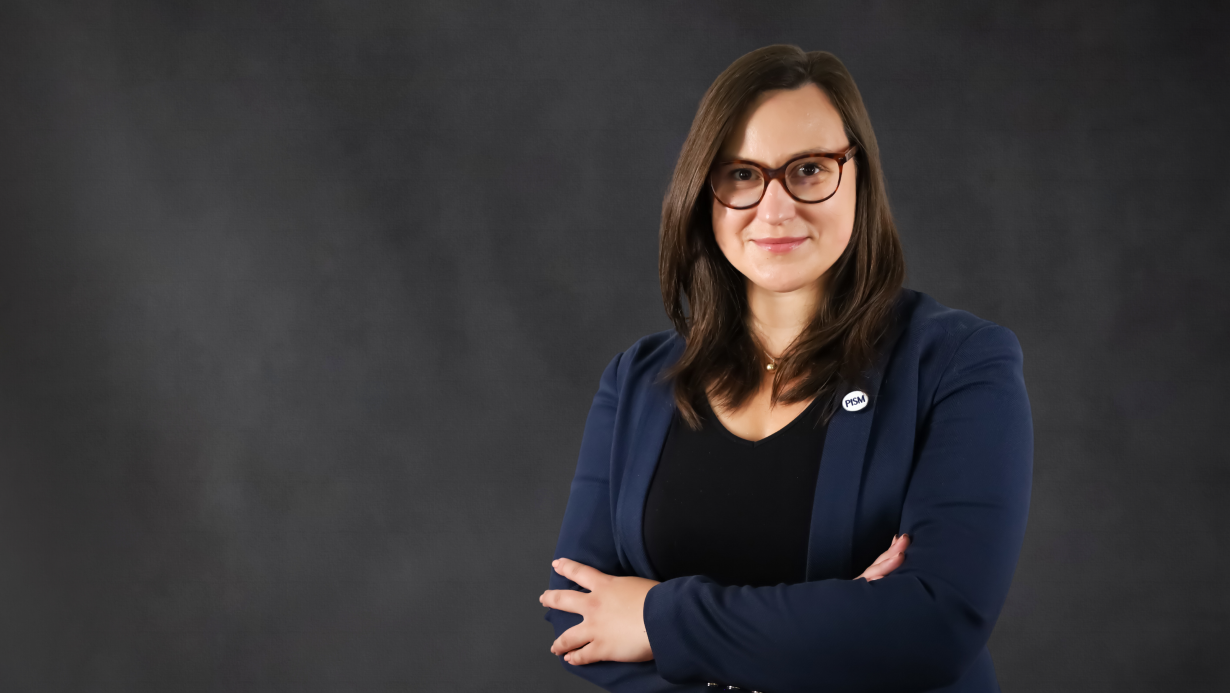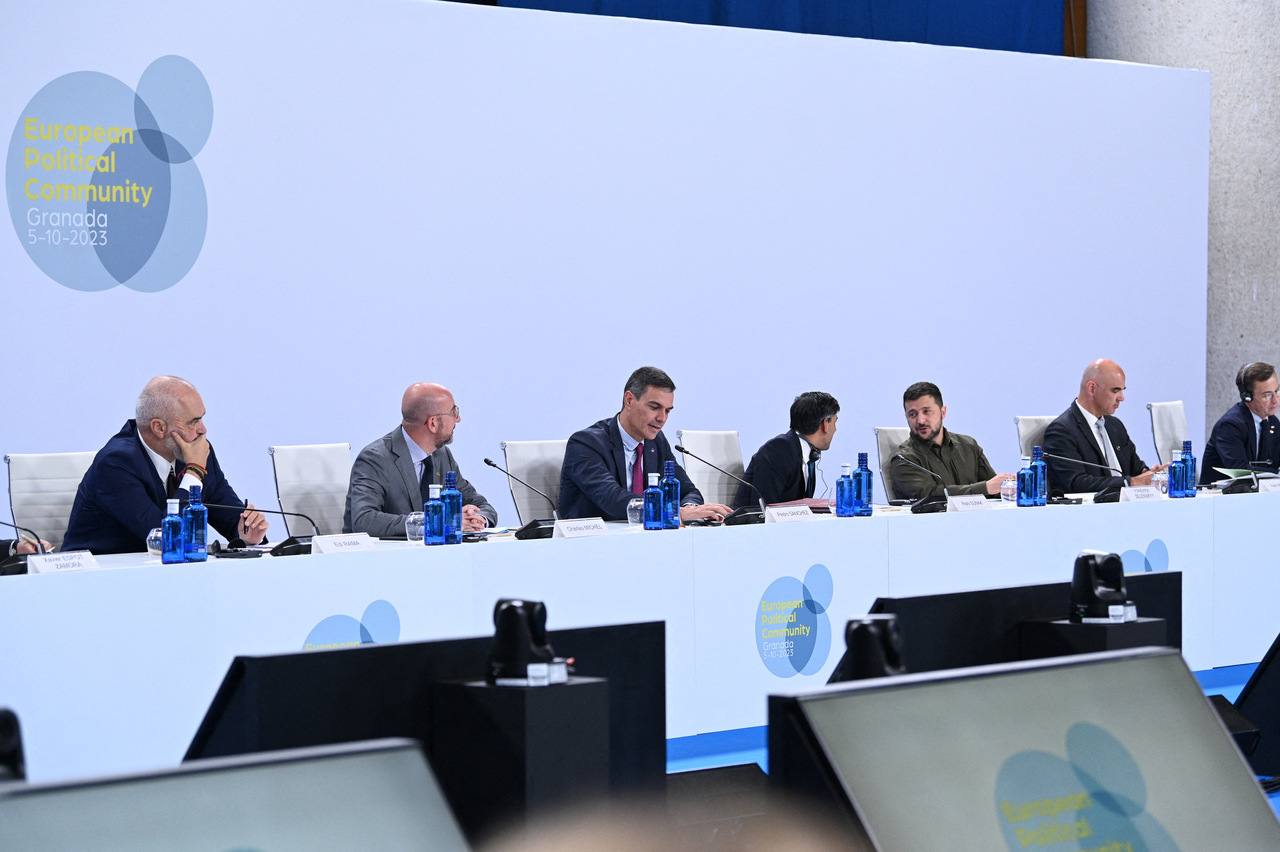EU Searching for Approach to the Nagorno-Karabakh Conflict
The end of the fighting in Nagorno-Karabakh presents the EU with the challenge of adapting its policies to the new political realities and actively engaging in the normalisation process in the region. As a first step, this may involve strengthening cooperation with Armenia by supporting it in hosting refugees and weakening its dependence on Russian security guarantees provided earlier for the Karabakh conflict. An additional challenge for the Union will be to interact with the Azerbaijani authorities, who are aware of the importance of their country to the EU’s energy security and are therefore reluctant to compromise.
 ALKIS KONSTANTINIDIS / Reuters / Forum
ALKIS KONSTANTINIDIS / Reuters / Forum
The EU and Nagorno-Karabakh
The self-proclaimed Nagorno-Karabakh Republic was established in the late 1980s to early 1990s by Armenians in a region formally part of Azerbaijan. It was not recognised by any EU Member State. At the same time, some members have closer relations with Azerbaijan (e.g., Italy, Austria, Hungary, Romania, and Bulgaria because of, among other things, gas supplies) and others with Armenia (e.g., France, due to the Armenian diaspora and relations with Turkey). The EU has not clearly taken sides in the conflict and the positions of its institutions differ. The European Commission (EC) is keen on good relations with Azerbaijan because of gas supplies. The European Parliament (EP), on the other hand, is more sympathetic to the Armenians, for example, there is the Group of Friends of Nagorno-Karabakh, established in December 2020.
Throughout the years of conflict, the Union has acted mainly reactively by providing humanitarian aid and issuing statements of non-recognition of events taking place in the self-proclaimed republic, such as elections. It has called on Armenia and Azerbaijan to refrain from the use of force, to resolve the dispute peacefully, and has supported the efforts of the OSCE Minsk Group set up for this purpose.
In parallel, the Union has become increasingly involved in promoting peace and stability in the South Caucasus. Since the first decade of the 2000s, it has appointed a special representative in the region (currently Toivo Klaar from Estonia) to promote a peaceful solution to the disputes there. Among other things, he is supposed to raise the visibility of the EU and support the OSCE in talks with Armenia and Azerbaijan. Azerbaijan’s assumption of control of Nagorno-Karabakh on 19 September this year and the dissolution of the self-proclaimed authorities planned for 1 January 2024 only seemingly removes the problem of defining the EU’s position on the dispute, as it is not yet fully over.
EU Policy after Azerbaijan’s Victory in 2020
Following the escalation of the Karabakh conflict in 2020 (the so-called Second Karabakh War), EU High Representative Josep Borrell held talks with the foreign ministers of Armenia and Azerbaijan, followed by Russia and Turkey. In the next months, however, the mediation of European Council President Charles Michel, who met with Azerbaijani President Ilham Aliyev and Armenian Prime Minister Nikol Pashinyan, was more prominent. As a result, in October 2022, the EU deployed the EUMCAP civilian observer mission on the Armenian side of the border with Azerbaijan for two months. The task of the observers included monitoring the situation, producing analyses for the peace process, and undertaking confidence-building measures (CBM). On 23 January 2023, the Council established a civilian mission in Armenia (EUMA) for two years with the task of patrolling the border with Azerbaijan and supporting mediation. Although sent at Armenia's request and stationed on its territory, the mission is also to cooperate with Azerbaijan.
In the period immediately preceding the September attack by Azerbaijan, the EU emphasised the obligation to respect the rights of the people of Nagoro-Karabakh and negatively assessed the blockade of the Lachin corridor connecting Armenia to the region. In direct response to the attack, the EU condemned Azerbaijan and called for, among other things, the right of Karabakh Armenians to remain safely in the region and for humanitarian aid to be allowed in, and for the parties to conduct dialogue. The Armenians have expressed their disappointment at this response from the EU, which they consider insufficient. This was highlighted by the fruitless discussion on the EP’s proposed imposition of sanctions on Azerbaijan. However, the restriction of energy imports suggested by some MEPs would hamper the EU’s efforts to become less dependent on Russia for supplies, which is of particular concern to the EC as it reached an agreement with Azerbaijan in July last year to double gas supplies to the EU by 2027.
Challenges for the EU
Effective engagement in the Nagorno-Karabakh normalisation process requires the EU to prove that it is a reliable partner for both Azerbaijan and Armenia. Although both participate in the Eastern Partnership (EaP), their relations with the Union differ significantly. While Azerbaijan is an important partner for the Union in the supply of energy resources, Armenia is perceived as closer to the EU due to its Comprehensive and Enhanced Partnership Agreement in 2017, hosting of an EU mission, ratification of the Rome Statute of the ICC, and others. Azerbaijan is not interested in strengthening ties with the EU beyond energy and trade cooperation, and negotiations for a new framework agreement with the Union have been on hold since 2019. Its attitude deprives the EU of instruments that would enable it to influence the Azerbaijani authorities to respect human rights, including the Armenian minority, a key issue for bringing lasting peace to the region.
Another challenge for the Union is to develop a constructive form of action in the peace process. The EU only formally engaged in the mediation process at the end of 2021, which was relatively late compared to the OSCE or Russia. Azerbaijan also opposes EU representatives’ access to the region. The Union’s difficulties in establishing itself as a mediator are also due to the activities of Russia and Turkey in the South Caucasus, their hostile attitude towards EU missions, and their aspirations to play a leading role in peace talks, partly accepted by the parties to the dispute. Russia has marginalised the role of the Minsk Group, putting forward its peace proposals and, since 2021, has deployed its forces in Nagorno-Karabakh under the agreement ending the Second Karabakh War. In turn, the recent escalation and Azerbaijan’s resignation from participating in the talks with Armenia and the EU scheduled for 5 October demonstrates the ineffectiveness of Michel’s initiative. At the same time, the other participants, France and Germany, are opposed to Turkey joining, which could persuade Azerbaijan to cooperate by balancing the EU’s pro-Armenian stance, especially France’s.
Conclusions and Perspectives
The weakening of Russian involvement and the stabilisation of relations between Armenia and Azerbaijan will benefit the EU by making its neighbourhood more secure. Potentially, it will enable the expansion of its engagement in the region to which it has so far had limited access and, in the longer term, the gradual weakening of Russian influence in the South Caucasus, also important for deepening its cooperation with Armenia. It is in the EU’s interest to intensify its efforts to conclude a new framework agreement with Azerbaijan with concrete commitments to respect human rights and the rule of law. However, as there are currently no arguments to convince the partner to do so, it will probably focus on continuing the political dialogue with it. In terms of EU cooperation with Armenia, it will be crucial to continue providing humanitarian assistance to support the reception of refugees from Nagorno-Karabakh, an effort in which Poland has already been actively involved.
Further EU involvement in the peace process remains uncertain. Although the Union’s initiatives to date have proved fruitless, they are gaining importance in the context of the Minsk Group’s ineffectiveness, guaranteeing the presence of the West in the negotiations. To sustain the EU-led talks, however, it will be necessary to gain the trust of Azerbaijan and Armenia. The Union may seek to limit it to a tripartite format (this is suggested, for example, by Michel’s planned talks with Aliyev and Pashinyan at the end of the month). Another option is to expand it to include representatives of EU countries with closer ties to Azerbaijan, as an alternative to Armenia’s contested Turkish involvement. There are fewer doubts about the EU’s involvement in the CBM; it has extensive experience and ground to stand on in this regard. At the same time, with Azerbaijan taking control of Karabakh and the UN sending a mission there, the EU may have to adapt how the EUMA and Special Representative operate to the changing circumstances. Among other things, the EU may try to extend EUMA’s mandate to include monitoring of the so-called Zangezur corridor, which Azerbaijan is seeking to establish in order to connect to its exclave Nakhichevan through Armenian territory. This could induce Armenia to agree to the creation of the corridor and thus contribute to the peaceful cohabitation of the two states.



.jpg)
.jpg)
